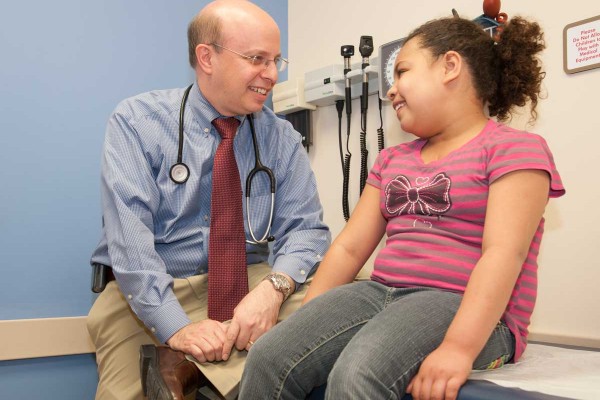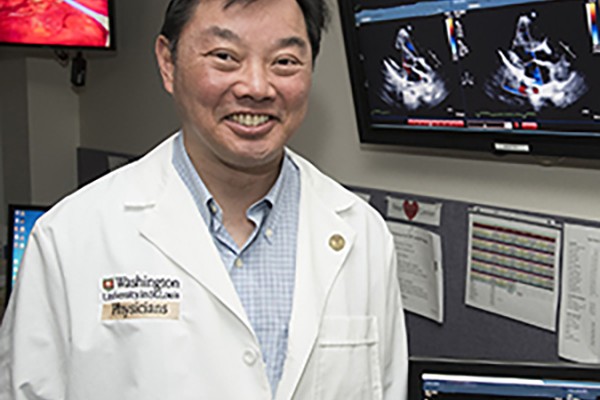For kids prone to wheezing with respiratory infections, early antibiotics help
In children whose colds tend to progress and lead to severe wheezing and difficulty breathing — such that they are given oral corticosteroids as rescue therapy — researchers have shown that giving a common antibiotic at the first sign of symptoms can reduce the risk of the episode developing into a severe lower respiratory tract illness.
Exercise for older mouse mothers lowers risk of heart defects in babies
Older mice genetically prone to bear offspring with heart defects can reduce this risk to that of younger mouse mothers with the same genetic defect through exercise alone, according to new research at the School of Medicine. The study, led by Patrick Y. Jay, MD, PhD, also suggests that the increased risk of congenital heart defects is tied to the age of the mother and not the age of her eggs.
Antibiotics prevent some hospital UTIs
Urinary tract infections are among the most common infections acquired in hospitals, with most linked to the use of catheters. New research suggests that some urinary tract infections could be prevented if patients receive an antibiotic at the time they have a urinary catheter removed.
Nanoparticles loaded with bee venom kill HIV
Nanoparticles carrying a toxin found in bee venom can destroy human immunodeficiency virus (HIV) while leaving surrounding cells unharmed, researchers at the School of Medicine have shown. The finding is an important step toward developing a vaginal gel that may prevent the spread of HIV. Shown are nanoparticles (purple) carrying melittin (green) that fuse with HIV (small circles with spiked outer ring), destroying the virus’s protective envelope.
Washington People: David Warren
David Warren, MD, medical director for infection control at the School of Medicine and Barnes-Jewish Hospital, works diligently to prevent infections, but when they do occur, he pulls out all the stops to halt their spread. And in a world that is increasingly interconnected,
Warren also must keep abreast of emerging global epidemics that have the
potential to wreak havoc if there’s a local outbreak.
‘Pink ribbon dollars’ help fill financial gaps for breast cancer programs
Donations collected by check boxes on state income tax forms, fees from license plates and revenue from state lottery tickets have raised millions for breast cancer research and prevention programs, researchers at Washington University in St. Louis have found.
At the heart of prevention
When Graham Colditz, MD, DrPH, went to medical school, he was struck by the kinds of patients he saw in the hospital. Too many were suffering from heart attacks or lung cancer — conditions linked to smoking. “It made me wonder: Couldn’t we do a better job at prevention?” he says.
Adolescent drinking adds to risk of breast disease, breast cancer
Girls and young women who drink alcohol increase their risk of benign (noncancerous) breast disease, says a study by researchers at Washington University School of Medicine in St. Louis and Harvard University. Benign breast disease increases the risk for developing breast cancer.


